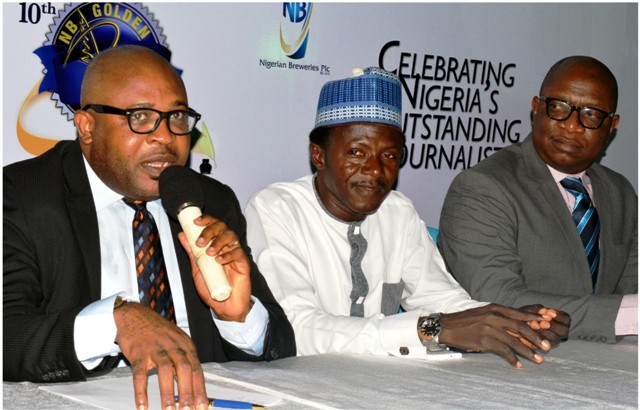Business
‘Budget Cycle Inconsistency, Hindering Economic Dev’

Over the years, the nation’s budget cycle has been inconsistent without a definite pattern, giving room for speculations and poor implementation.
According to data obtained from the Fiscal Responsibility Commission (FRC) 2016 Annual Report and Audited Accounts, from 2011 to 2017, the time of approvals of the budgets is well into the New Year.
The earliest was that of 2013 which was submitted to the National Assembly on Oct. 10, 2012 and assented to by President Goodluck Jonathan on Feb. 26, 2013, indicating a five month time lag.
All others were presented to the National Assembly in December and assented to in April, May or June.
In seperate interviews with the News Agency of Nigeria (NAN), experts said that the inconsistency does not bode well for the economy.
The Head of Research, BudgIT, Mr Atiku Samuel, said the economy depends on fiscal, monetary and trade policies to power it.
“Monetary authorities look closely at the budget for direction and that is why the Monetary Policy Committee (MPC) of the Central Bank of Nigeria (CBN), was reluctant at its first meeting in 2018 to take action.
“Trade policy formulators sometimes bury decisions inside the budget.
“As such, the budget is an important planning tool within any functional economy”, he said.
He added that inconsistency in the budget cycle meant that both monetary and trade policy formulators could not act or take informed actions at the appropriate time.
“That typically cascades across the economy, making decisions irrational and sometimes irrelevant.
“The organised private sector also suffers. For instance, government spending accounts for about 50 per cent of construction related spending.
“If the budget is not presented and passed at the right time, an inconsistent pattern follows as we have in Nigeria and players in that sector will also have to restructure.
“They cannot recruit in anticipation of an increase in spending and that inevitably kills jobs.
“Some even sack workers because revenue is inconsistent, as we have seen in the construction sector.”
Samuel said that inconsistency in the budget cycle also renders fiscal stimulus ineffective and makes the pattern of spending difficult to trace and follow through.
He added that no investor likes volatility because it creates huge unmanageable risks.
Lead Director, Centre for Social Justice (CSJ), Mr Eze Onyekpere, a Civil Society Organisation (CSO), said the fact that the nation no longer had a fixed budget calendar had introduced inconsistency and uncertainty into the economy.
He said this trend had influenced poor economic performance in terms of Gross Domestic Product (GDP), growth and ability to meet sectoral objectives.
“This has also led to haphazard budgetary and economic policy implementation. Capital budget implementation has suffered under this budgeting scenario.”
He, however, said that the executive and legislative arms of government had specific roles to play in rectifying and addressing the budget calendar and implementation challenge.
“First, the executive have to start the budget preparation process early through the Medium Term Expenditure Framework (MTEF).
“The MTEF should be ready for the endorsement of the Federal Executive Council (FEC), on or before the end of the second quarter (June).
“It should be submitted to the legislature which should vet and approve of same before proceeding on their legislative break in July.
“Thereafter, the executive budget should be ready by the first week of September and submitted to the National Assembly which will then have four months to approve same before the end of the year.”
According to Onyekpere, there should be a commitment on the part of the legislature to approve the budget before proceeding on Christmas and New Year vacation.
This, he said, would enable implementation begin on Jan. 1 of the New Year.
The Acting Chairman FRC, Mr Victor Muruako, also said the trend reduces predictability and affects planning even within the Ministries, Departments, and Agencies (MDAs), and with those doing business.
“It is also not very encouraging to investors because government being the highest spender, it is good that there should be a level of predictability”, he said.
Muruako, however, said that though the inconsistency was not a good precedent, the commission was working closely with other MDAs, particularly the Ministry of Budget and National Planning, Budget Office of the Federation and Ministry of Finance to improve on it.
This, he said was to ensure stricter compliance with timelines so that the right thing would be done at the right time.
“It is an evolving thing and we are not there yet but I believe that with the level of commitment of the Federal Government, particularly the financial team, I see a silver lining in the horizon and we will definitely get there.
“We are hoping that we will soon see a January to December financial year, but there is need to improve the relationship between the executive and legislative arms of government, because that is another thing that affects it.”
He recalled that the budget was submitted to the National Assembly in the first week of November 2017, but was only passed by the legislature in May, adding that the legislature had a greater role to play.
Muruako said there was the need for better relationship between the executive and legislature so that there would be synergy.
He also said that if the legislative arm was involved from the point of formation or articulation of the estimates, there would not be need for too much scrutiny.
“The theory of separation of powers is there, but they are supposed to work as one.
“Anytime they are not working together, it is evident and this is affecting the nation, but I believe that democracy is still evolving here and we will get there soon,” he said.
The FRC report also said that a strict budget timetable should be incorporated into the Fiscal Responsibility Act (FRA), 2007.
It said that through that, relevant agencies would be committed to specific tasks, timelines and deadlines, which if enforced would help solve the perennial problem of late preparation and passage.
NAN reports that the 2018 Appropriation Bill of N8.61 trillion proposed by President Muhammadu Buhari, was presented to the National Assembly in November 2017.
It was, however, raised to N9.12 trillion and passed by the National Assembly on May 16.
Folarin writes for News Agency of Nigeria.
Folasade Folarin
Business
NPA Assures On Staff Welfare
Business
ANLCA Chieftain Emerges FELCBA’s VP
Business
NSC, Police Boost Partnership On Port Enforcement
-

 News2 days ago
News2 days agoCourt Sentences Gospel Singer To Death For Killing Girlfriend In Nasarawa
-

 Featured1 day ago
Featured1 day agoTinubu Signs Four Tax Reform Bills Into Law …Says Nigeria Open For Business
-
Sports2 days ago
Olympic Day Sparks Nationwide Fitness Fever
-

 Nation2 days ago
Nation2 days agoOgoni Stakeholders Hail Zabbey’s Performance
-
Sports2 days ago
I Joined Saudi League To Win Titles – Senegal Keeper
-

 Featured2 days ago
Featured2 days agoSenate Issues 10-Day Ultimatum As NNPCL Dodges ?210trn Audit Hearing
-

 News2 days ago
News2 days agoWDD: Tinubu Seeks Global Action On Drug Abuse
-

 News1 day ago
News1 day agoShettima In Ethiopia For State Visit

